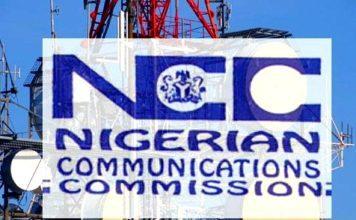Prof. Umar Danbatta, executive vice-chairman, Nigerian Communications Commission (NCC), says the fifth-generation network which had been launched in Lagos, would improve the nation’s communication services.
According to NCC, the Federal Government’s digital economy is still being driven by the telecommunications industry.
Danbatta stated this at the NCC Day at the 44th Kaduna International Trade Fair, Kaduna on Saturday.
He said: “The commission recognises the fact that telecommunications sector has been a strategic driver of the digital economy agenda of the Federal Government, as it continues to provide the needed digital stamina to support the economy, especially the activities of the SMEs across in Nigeria and beyond.
“Information communications technology is not only one of the fastest growing industries directly creating millions of jobs but it is also an important enabler of innovation and development, as it provides the backbone infrastructure for transnational business.
“Hence, in line with the Digital Literacy and Skills Pillar of the National Digital Economy Policy and Strategy 2020-2030, for a Digital Nigeria, the commission embarked on digital literacy training for entrepreneurs across the six geopolitical zones of the country. The aim was to equip small-scale business owners with the requisite skills and to generate ideas for development of product and service that can be exported.
“NCC’s regulatory efforts in deepening access to digital services will benefit Nigeria and make it competitive comparable with other economies in the areas of job creation; contribution to Gross Domestic Product (GDP) growth; emergence of new services and industries; workforce transformation; and business innovation.
“It is in our response to ensuring that Nigeria is competitive in all these areas that Commission continuously puts a number of regulatory measures in place to ensure seamless access by Nigerians to telecommunications services in order to deepen competitiveness of the Nigerian economy by making our SMEs digitally compliant.
“In Nigeria today, the number of active mobile subscriptions reached about 222.571 million at December 2022 and Teledensity of 116.60 per cent as at December 2022. Also, Internet subscribers have exceeded 154.8 million with broadband penetration standing at 47.36 per cent as at December, 2022.
In this new environment, the competitiveness of Nigeria’s SMEs, for instance, depends on their ability to leverage new technologies by acquiring the necessary digital skills to do business on an international scale.”
The NCC Executive Vice Chairman added, “As you may be aware, the NCC is driving initiatives for full commercial launch of fifth generation network in Nigeria. Already, spectrum licences for the companies that will rollout service have been issued.
“Though, the deployment will start from the state capital and gradually extends to other areas across the state, it is important to state that the 5G network will bring substantial network improvements, including higher connection speed, mobility and capacity, as well as low-latency capabilities to communications services in Nigeria. I am happy to inform you that one of the licensees has kicked off commercial launch in Lagos.
“More importantly, it is also our commitment, at NCC, to continue to provide a level-playing ground for operators to thrive, promote investment and delivery of innovative services to individual consumers, SMEs and big business owners by ensuring enhanced consumer quality of experience.”
